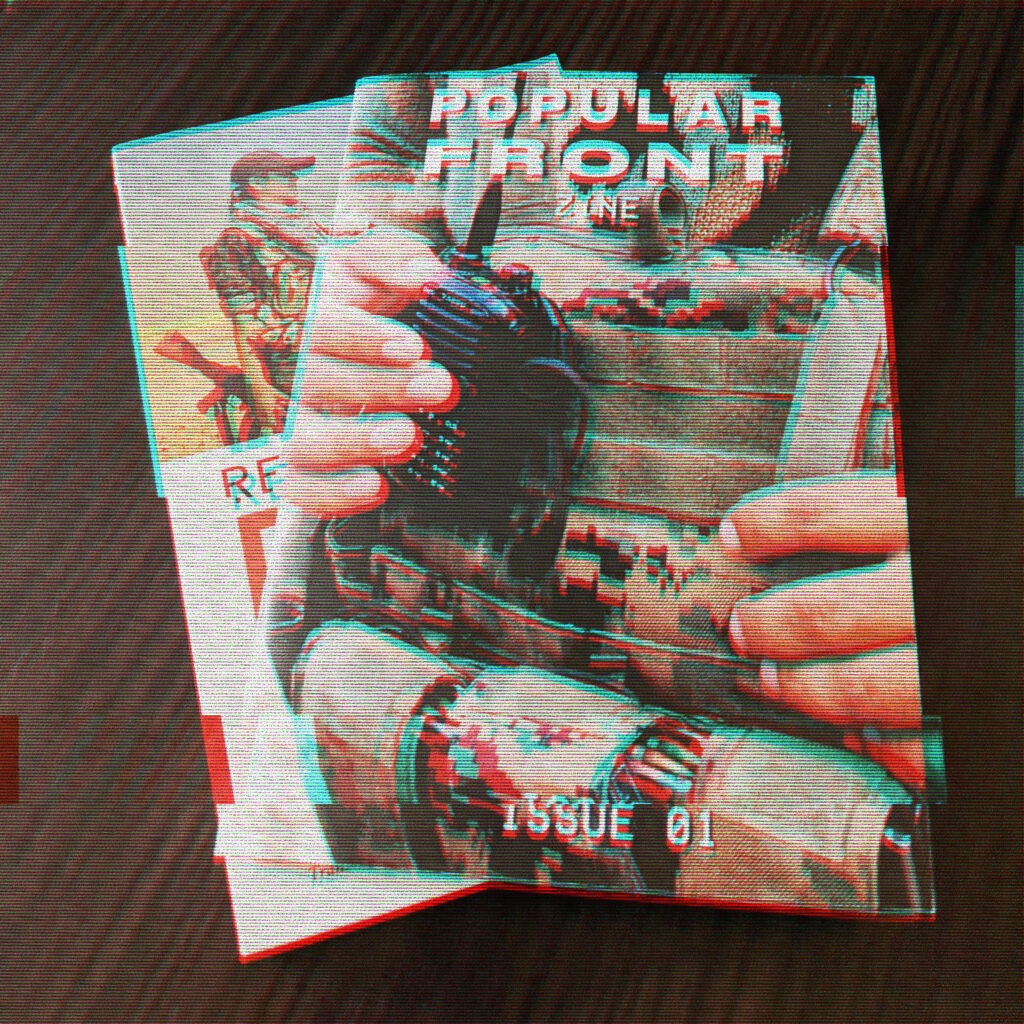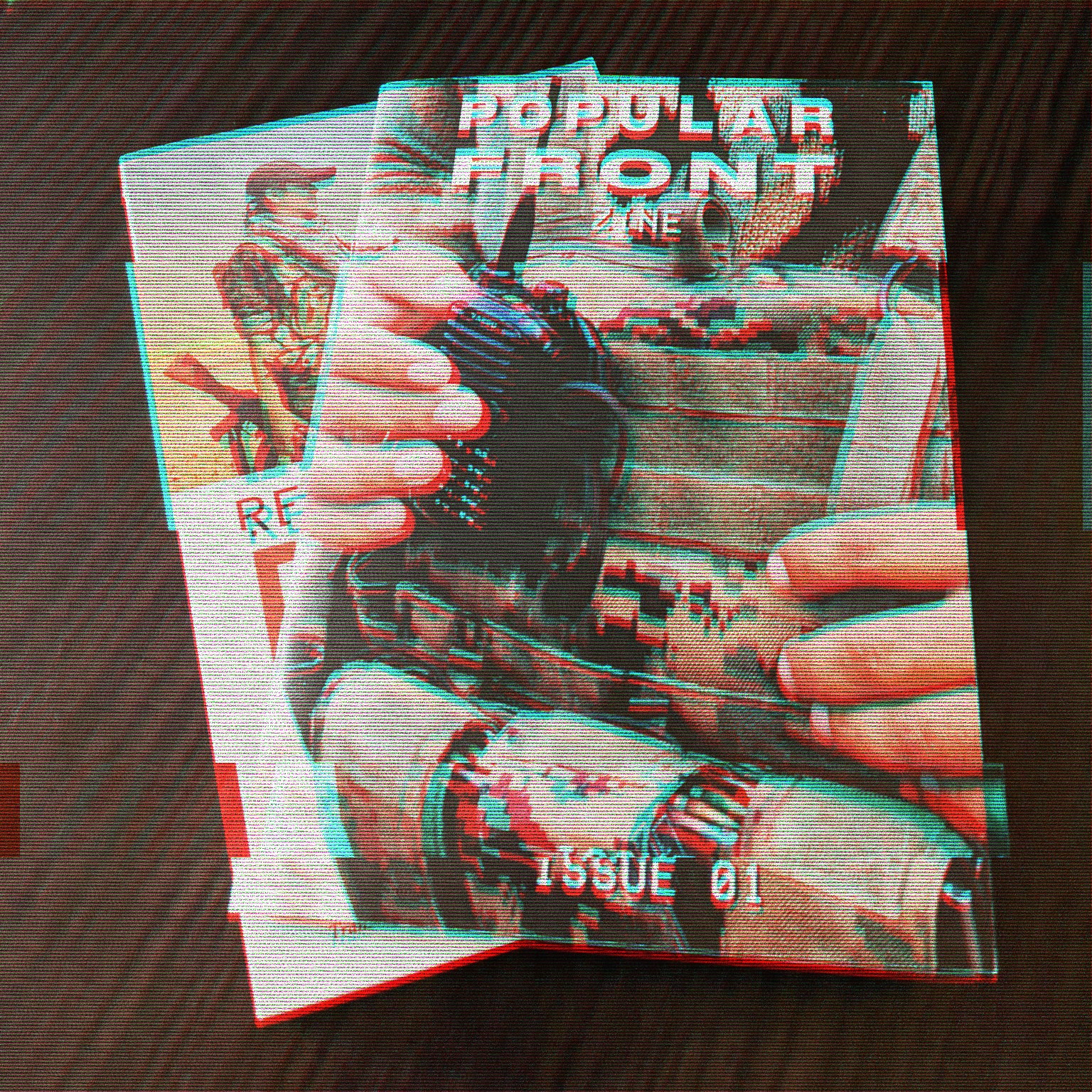Steven R. D. Henderson
Social, ecological and disinformation-related problems have gotten worse this year. Propaganda is rampant, and what’s true is not always clear. Against this backdrop journalism like Popular Front is important.
Popular Front began as a podcast devoted to “grassroots conflict journalism.” Reporting what the mainstream media often does not, it’s a valuable resource. A stark example is the recent podcast episode with Meghan Bodette, discussing her work documenting the women who have gone missing in the wake of the Turkish invasion of Afrin. When I discovered that Popular Front was publishing a new zine it caught my interest. After I learned its contributors included people involved with Symbiosis, I grabbed a copy.

The small booklet is filled with a variety of content related to conflict, as well as colourful graphics and photos. However what social ecologists would probably find most interesting is about Rojava or Syria. The first story along these lines is Hugo Kaaman’s “Bouquet of death,” which discusses why ISIS fighters bring flowers to suicide bombings. This is certainly a grim subject, but outside of niche publications it’s uncommon to read about the religious customs and traditions that surround such terrorism. I did not know that flowers usually represent martyrdom and paradise when used by jihadists.
Kimberly Westenhiser’s article “Turkey’s assault on Rojava water stations” is typical of the coverage found in Popular Front—the sort often not found elsewhere for political reasons. The piece looks at Turkish military attacks on the Alouk water station near Serekaniye. As Westenhiser notes, these hostilities also came with a “series of strikes on civilian infrastructure, including schools, bread factories, roads, and ambulances.” In a time of ethnic cleansing and human rights violations being committed by the Turkish state, reporting of this sort is urgently needed.
My favourite part of the pamphlet was the photography done by Jake Hanrahan, the creator of Popular Front. These images represent what sets this publication apart from other media: its refusal to objectify those it reports on. Although separated by distance and from different cultures, looking over the photos you see and feel their struggle; your eyes meet theirs, and you’re reminded of our shared humanity.
In the context of crisis and conflict, Popular Front is a voice for the truth; its zine is a valuable addition to this project. Those wanting to learn more can visit popularfront.co or find them on most social media.


